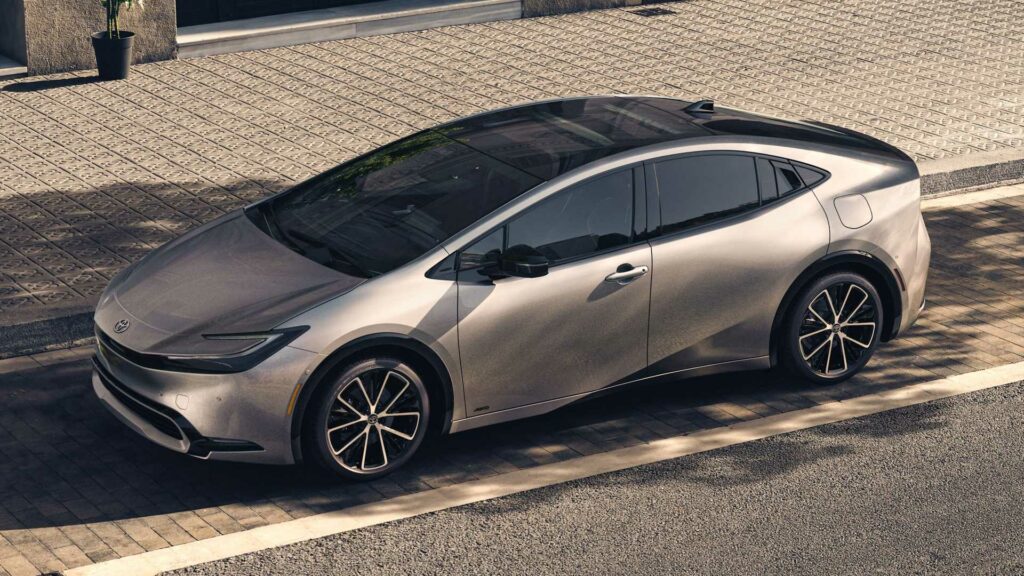
When it comes to fuel efficiency and eco-friendly vehicles, Toyota has been a pioneer in the automotive industry. With the introduction of the iconic Prius in 1997, Toyota has continued to innovate and expand its lineup of hybrid vehicles. However, in the emerging electric vehicle market, Toyota’s offerings seem to be lagging behind their competitors. We’ll explore why Toyota hybrids are a better choice for consumers than Toyota electric cars, and provide insights into their most popular hybrid models.
EVs Are Great…. When Well Equipped
I’m an EV owner myself. My 2022 Hyundai IONIQ 5 is the best vehicle I’ve ever owned. But that doesn’t mean that all electric models are equally packed with value, efficiency and exhilaration. There are vast differences in range, efficiency, charging capabilities and standard features among EVs on sale in 2023. In many cases, these differences can make or break the value proposition for an electric car. Consider the following:
- Are you willing to spend an hour at public charging stations on road trips?
- Would 200 miles of highway driving range cut it for you?
- Do you have a place to charge at home?
- Are you willing to spend several thousand dollars more to say goodbye to gas stations?
If you answered no to any of these questions, a traditional hybrid or even plug-in hybrid powertrain is probably better suited for your lifestyle than Toyota’s new electric model. Before we throw praise at Toyota’s accomplishments on the hybrid front, let’s take a look at their latest darling, the all-electric bZ4X electric crossover.
The 2023 Toyota bZ4X
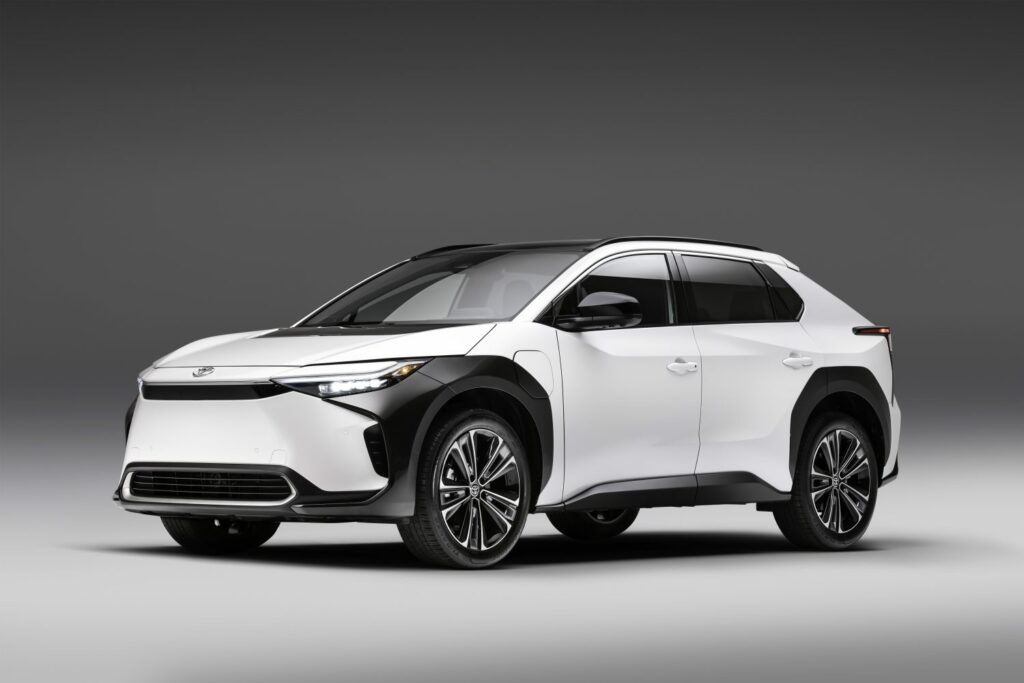
Price: $42,000 – $52,000
Range: 227 miles – 252 miles
Availability: On sale now (see listings in your area with local market data)
Toyota’s first fully-electric model looks better than it performs. Engineered in partnership with Subaru, the 2023 Toyota bZ4X features a comfortable ride, modern looks, but also some notable drawbacks that potential buyers should consider. Here are some of the flaws that will be deal-breakers for some:
Slow charging: One key limitation of the bZ4X is its frankly miserable charging speeds. This means significantly longer wait times at charging stations and is likely to be inconvenient for those who frequently embark on long trips or have limited access to charging infrastructure. Tests by MotorTrend found that the bZ4X’s greatest flaw is charging. Take a look at MotorTrend’s real-world experiment:
- At 65 degrees Fahrenheit, their all-wheel drive Toyota bZ4X charged from 5% to 80% (adding about 180 miles of range) in 1 hour and 4 minutes. For comparison, the Model Y, IONIQ 5 and EV6 can all do that in 20 minutes in warm weather.
- Charging from 80% to 90% took an additional 36 minutes. Need the full 227 miles of EPA-rated range? That would take an extra 7 HOURS. No bueno.
Even worse, Toyota admitted in a disclaimer that DC charging may not work when below 32 degrees Fahrenheit. It wasn’t just MotorTrend, others have found similar results.
Range Lacks: In the city, the bZ4X’s EPA-rated range of 227 miles with AWD and up to 252 miles with FWD is just a hair below average. But when you combine average range with below average charging speeds, that’s where we run into problems. Consider that on the interstate at 70 mph, the bZ4X can make it about 190-200 miles on a charge. That’s not too bad, but when you realize that you’ll be stopping for an entire hour to charge every 180 miles or so, it doesn’t sound like a pleasant ownership experience.
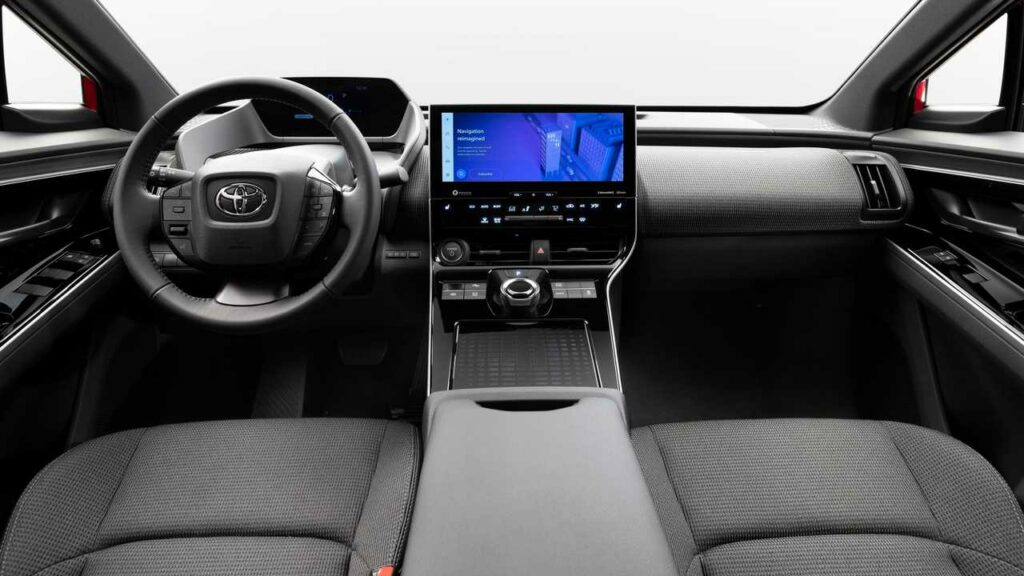
If you don’t plan to take your $45,000+ bZ4X on any road trips, perhaps this is of little importance to you. However, keep in mind that the bZ4X’s reputation as a slow-charger will impact its resale value.
Toyota Hybrids Are Class Leaders
We’re not here to bash on Toyota. In fact, we are big fans of their proven powertrain technologies. Toyota’s hybrid technology has a decades-long track record of reliability and fuel efficiency. The automaker has been perfecting its hybrid powertrain for more than two decades, which means that when you choose a Toyota hybrid, you’re investing in a vehicle with a well-established and reliable system. Toyota’s Hybrid Synergy Drive combines a gasoline engine with one or more electric motors to deliver a seamless driving experience while maximizing fuel efficiency.
Hybrid Fuel Efficiency
Toyota hybrids are well-known for their impressive fuel efficiency. Models like the Prius, Camry Hybrid, and RAV4 Hybrid offer outstanding fuel economy, which translates into cost savings for consumers for a lower upfront cost than an EV. It’s not just about the Prius, either. The Highlander Hybrid is one of the only three-row SUVs equipped with a hybrid powertrain.
Toyota has come a long way since the launch of the Prius over 20 years ago. Not only do today’s hybrid models look a lot better, they’re more spacious AND more efficient. That’s not easy to do.
For instance, the 2003 Toyota Prius was rated for 41 miles per gallon combined. The all-new 2023 Toyota Prius gets 57 miles per gallon, and doesn’t look like a lunch box.
While electric cars are more energy-efficient overall, the higher cost, limited range and charging infrastructure make them less practical for some drivers. Toyota hybrids, on the other hand, provide the perfect balance between fuel efficiency and practicality.
Affordability
Toyota hybrids are generally more affordable than their electric counterparts. While EV prices have been decreasing over the past months following Tesla’s massive price cut, they still tend to be more expensive than comparable hybrid models. Additionally, the cost of ownership for a hybrid vehicle is often lower than that of an electric car, considering factors such as maintenance, charging equipment, and electricity costs. Toyota’s hybrid lineup offers excellent value for money, making them a smart choice for budget-conscious consumers.
Back when gas prices peaked at $5/gallon, we took a close look at the financial break-even point for various EV models. Take a look at what we found.
Range and Charging Infrastructure
One of the main drawbacks of electric cars is their limited range and dependence on charging infrastructure. While the charging network is continuously expanding, it still can’t match the convenience of gasoline stations. Toyota hybrids, however, eliminate the range anxiety associated with electric vehicles.
Toyota’s all-electric bZ4X is rated for 227 miles on a charge with all-wheel drive, and up to 252 miles with front-wheel drive. The hybrid RAV4 of comparable size is capable of driving 595 miles on a 14.5 gallon tank.
With their gasoline engines and regenerative braking, hybrids offer drivers the flexibility to travel longer distances without worrying about finding a charging station.
What About the Environment?
Eliminating tailpipe emissions and eventually reducing my family’s carbon footprint was one of the main reasons we went electric. However, the carbon ‘break-even’ point depends on how many miles you drive, and how efficient your EV is. We drive a lot, so even with the significant environmental impact of battery mineral mining considered, we determined that it would take us just two years to reach the carbon break-even point. If you drive less than 15,000 miles a year on average, it will likely take 3 to 5 years of driving to make up for the higher environmental cost of manufacturing an EV.
Your source of electricity also matters, as some power grids are much cleaner than others. But the good news is that once you turn that corner, EVs are better for the planet for the remaining life of the vehicle.
Popular Toyota Hybrid Models
Toyota offers a diverse lineup of hybrid vehicles to cater to various consumer needs. Some popular Toyota hybrid models include:
Toyota Prius
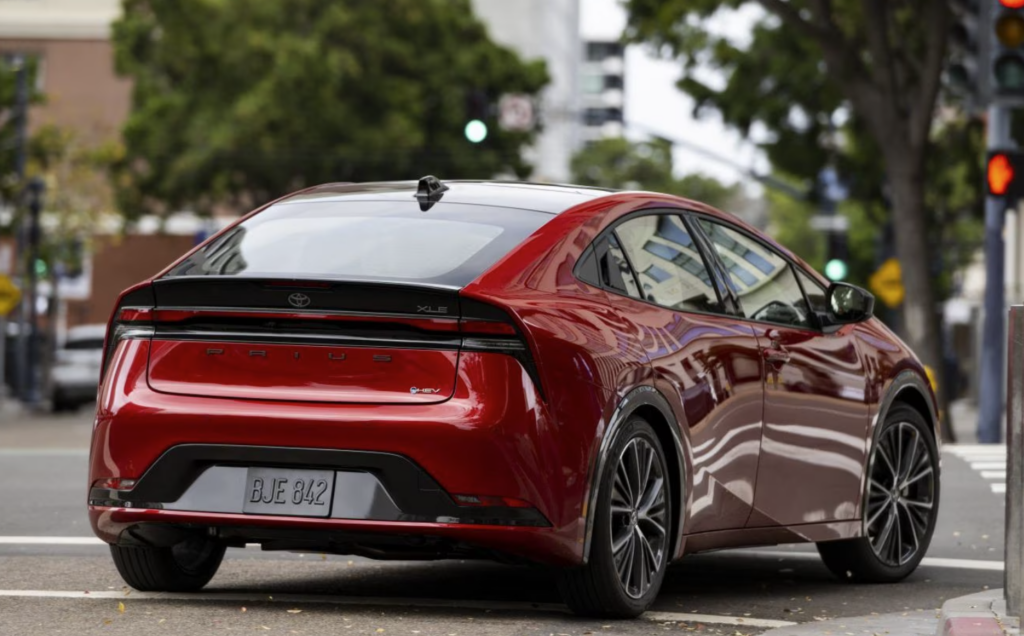
Fuel economy: 57 MPG combined
Starting price: $27,450
The flagship hybrid model, the Prius, is known for its outstanding fuel efficiency, reliability, and practicality. It offers a comfortable ride and a spacious interior, making it an excellent choice for families and commuters.
See Toyota Prius listings near you with local market data.
Toyota Camry Hybrid
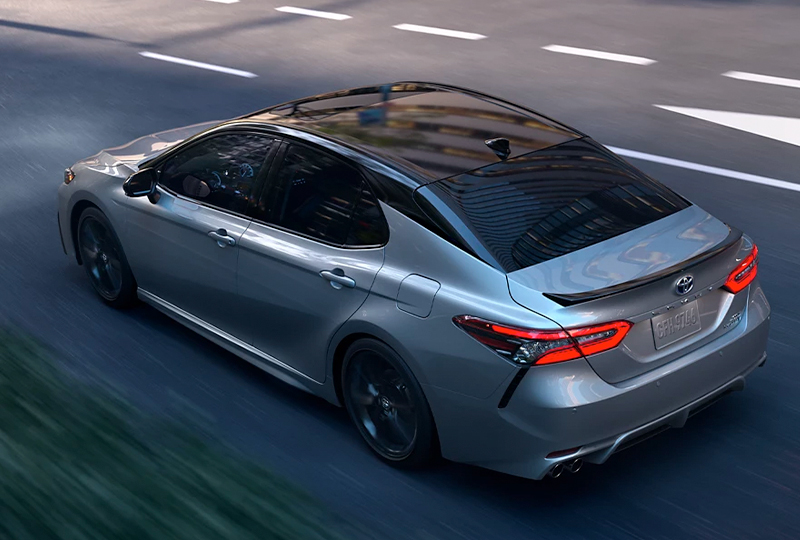
Fuel economy: 52 MPG combined
Starting price: $28,355
Combining the comfort and reliability of the Camry with Toyota’s hybrid technology, the Camry Hybrid delivers an impressive fuel economy and a smooth, powerful driving experience.
See Toyota Camry Hybrid listings near you with local market data.
Toyota RAV4 Hybrid
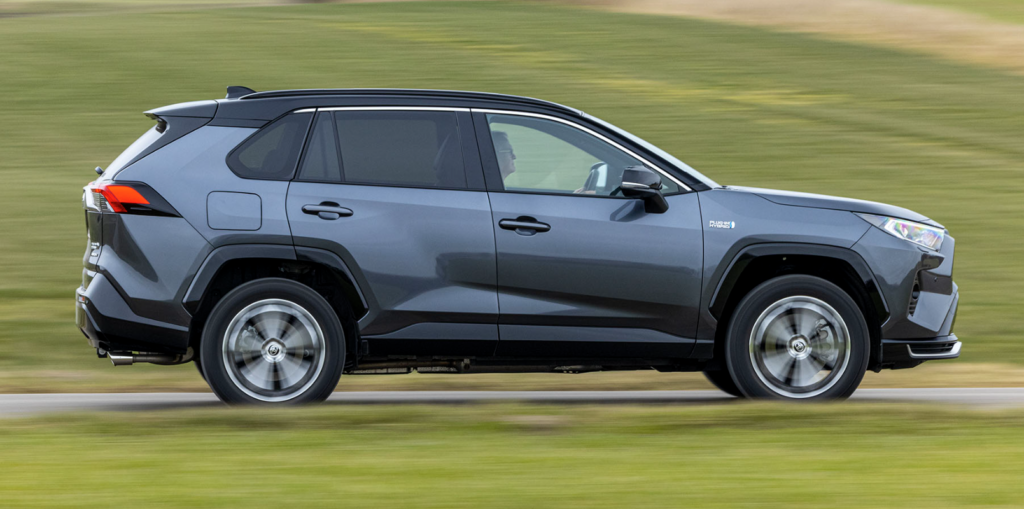
Fuel economy: 40 MPG combined
Starting price: $30,225
For those who need a more versatile and spacious vehicle, the RAV4 Hybrid offers the benefits of an SUV with the fuel efficiency of a hybrid. The only real downside is that it can be tough to find one on the lot due to the RAV4 Hybrid’s popularity and Toyota’s inventory woes.
See Toyota RAV4 Hybrid listings near you with local market data.
Toyota Highlander Hybrid
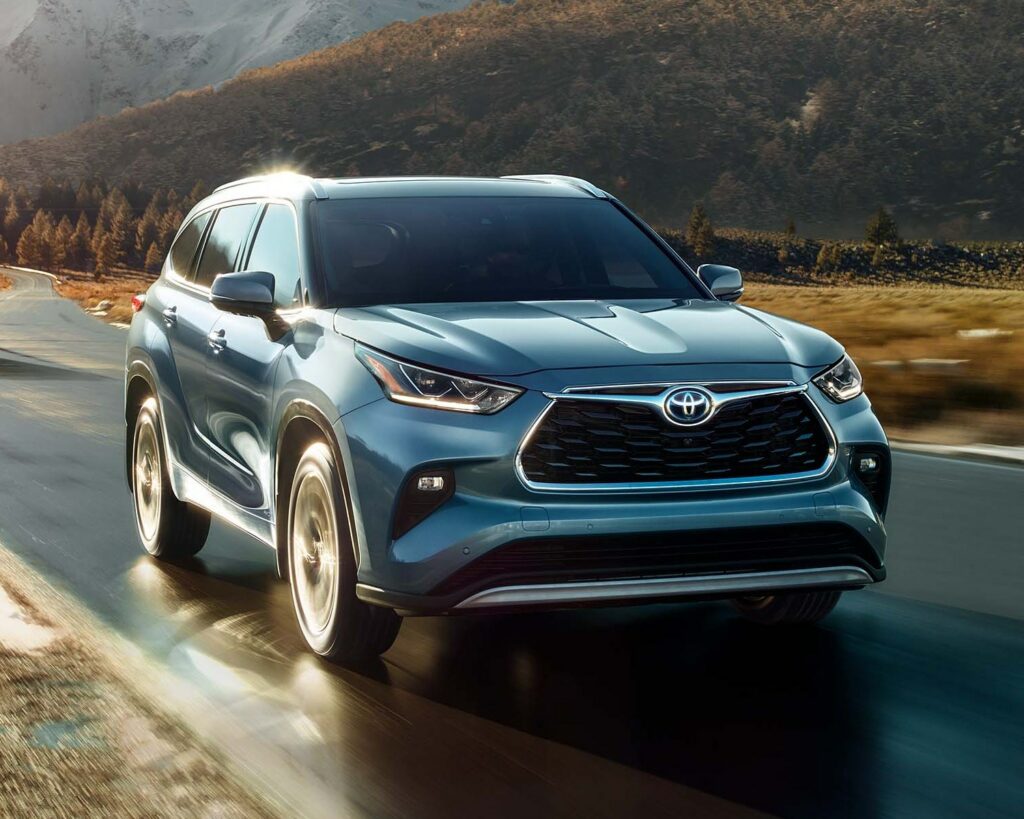
Fuel economy: 36 MPG combined
Starting price: $40,220
The Highlander Hybrid is arguably the best 3-row hybrid on the market. Typically synonymous with gas guzzlers, this family hauler is better for your wallet, and better for the environment.
We recently covered the Highlander Hybrid in-depth here.
See Toyota Highlander listings near you with local market data.
It’s Time For a Test Drive
Toyota hybrids continue to stand out as excellent options for consumers seeking fuel efficiency, reliability, and affordability. With their proven hybrid technology, impressive fuel economy, and diverse lineup of models, Toyota hybrids offer an ideal balance between eco-friendliness and practicality. While Toyota’s electric vehicles have yet to catch up with their competitors in the rapidly evolving EV market, the company’s hybrid offerings remain top choices for those looking to reduce their carbon footprint and save on fuel costs.










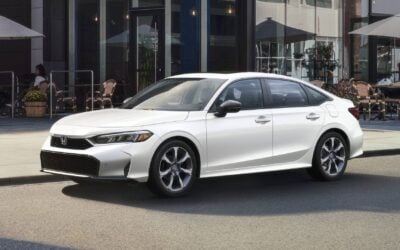


Is there a specific reason why the Corolla hybrid was not mentioned? That’s what I’m looking to buy but it wasn’t mentioned here. Is there something about it we should know about it that we don’t?
Hi Megan,
Nope, from all we’ve heard, that’s a great model with few complaints. Toyota has so many hybrid options these days, it’s hard to catch them all! Thanks for your feedback.